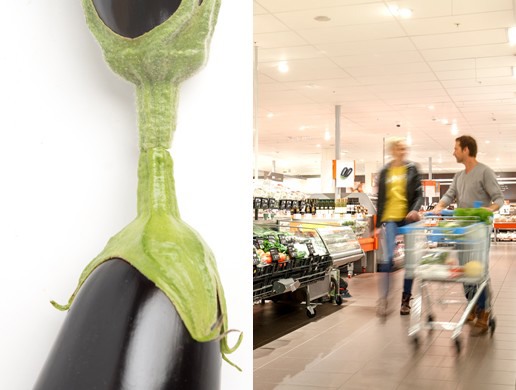Nowadays, sustainability is increasingly incorporated into a company’s business operations. Consumers have high expectations in terms of organic produce, low pesticide levels and alternatives to plastic packaging. So how can vegetable breeding companies play a role in offering solutions for ever-more demanding consumers?
Enabling sustainable production
According to the Danish consumer association Forbrugerrådet Tæk, in Denmark retailers such as Aldi, Coop and Lidl are responding to this consumer trend by demanding that their suppliers stay well below the legal limits for pesticide levels. To help them, Rijk Zwaan builds sustainability measures into its vegetable breeding process, not only by investing in breeding varieties with resistances to various diseases, but also by exploring other plant traits that can contribute to a more sustainable world. One example of such a project is the CleanLeaf aubergine concept.

CleanLeaf is aligned with consumer expectations
Rijk Zwaan’s CleanLeaf concept is aligned with rising consumer expectations related to sustainability. The first variety that was launched recently, called Kesia RZ, thrives in Mediterranean conditions such as in Spain and Greece, and is also extremely suitable for biological cultivation. CleanLeaf aubergine plants are almost hairless and therefore less attractive to certain pests. This improves integrated pest management and means that less corrective spraying is needed, thus resulting in less residue on the fruits.
More appealing fruits and less food waste
Not only are the plants themselves hairless but so too is the calyx of the aubergine, plus it is greener compared to conventional varieties. This makes it more appealing to consumers; consumer research has shown that 57% prefer the greener hairless version compared to 31% of consumers who prefer the conventional variety. Research has also demonstrated that Kesia RZ has a good shelf life, leading to less food waste. Breeding for products with a good shelf life is yet another example of how Rijk Zwaan aims to help growers and retailers to achieve their sustainability goals. As for consumers, they benefit from not only a more sustainable product, but also a more attractive one thanks to the greener calyx.

 Rijk Zwaan
Rijk Zwaan